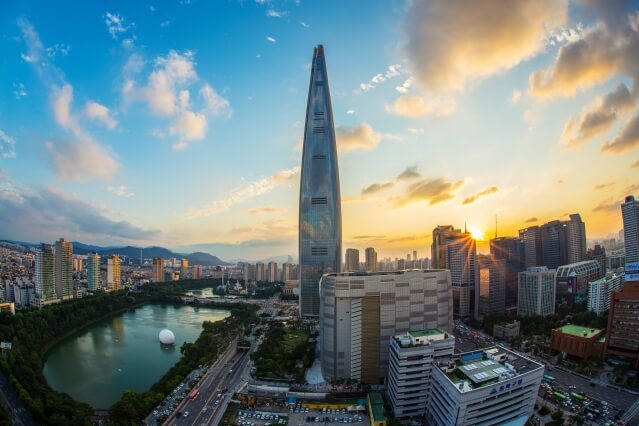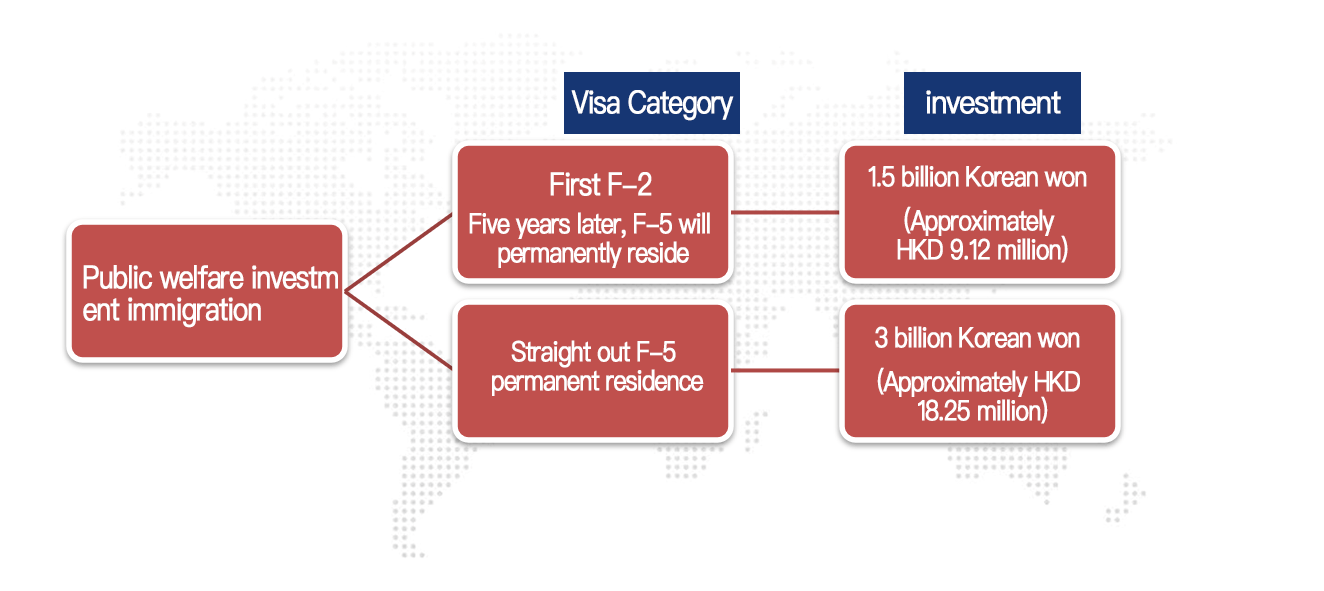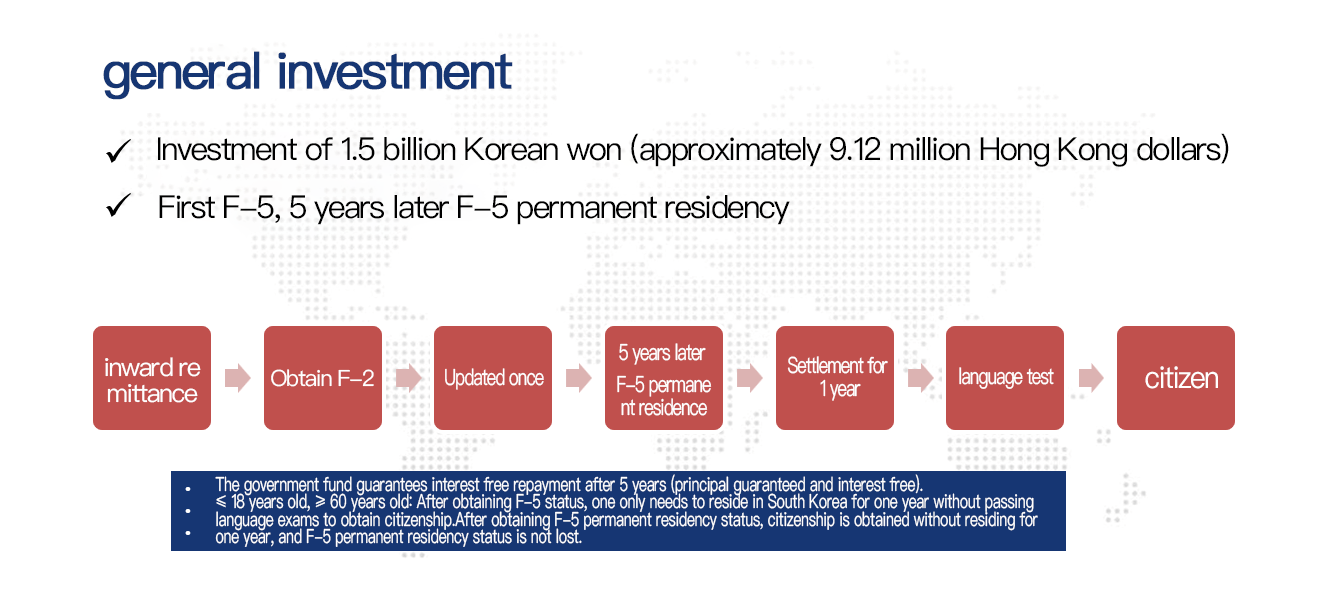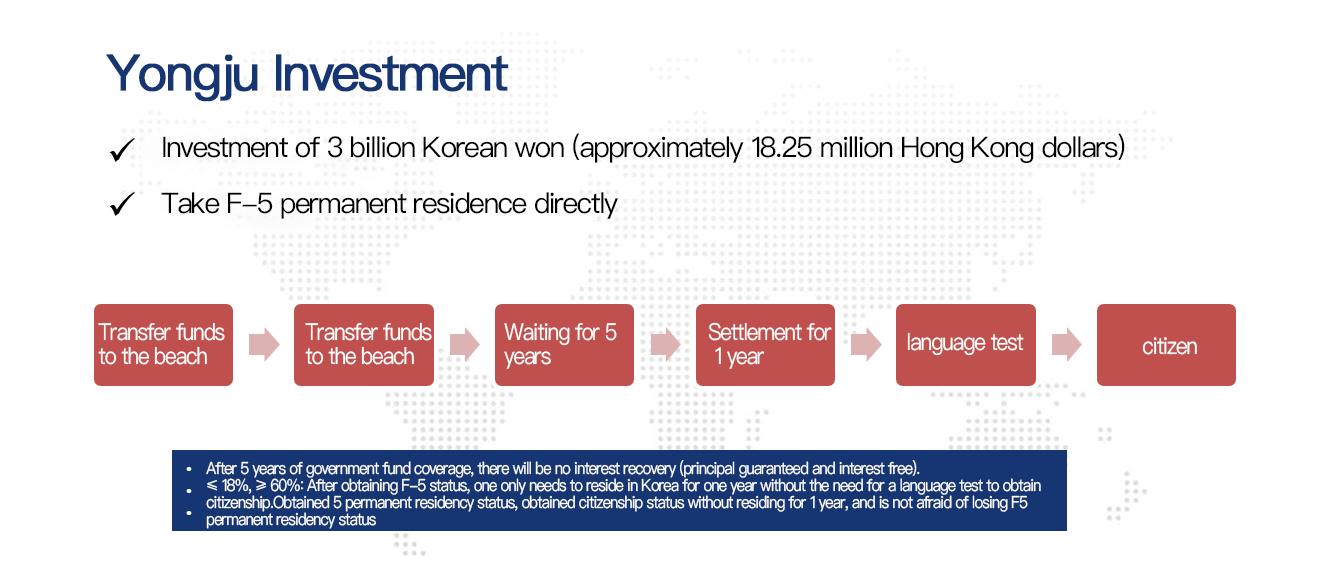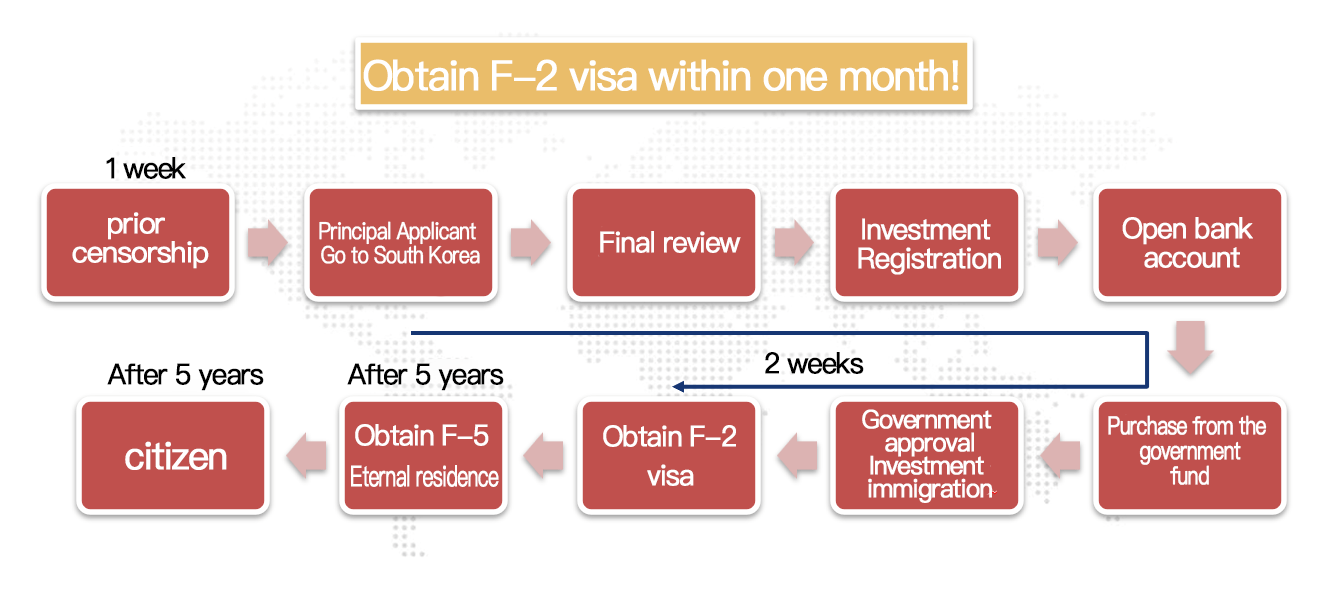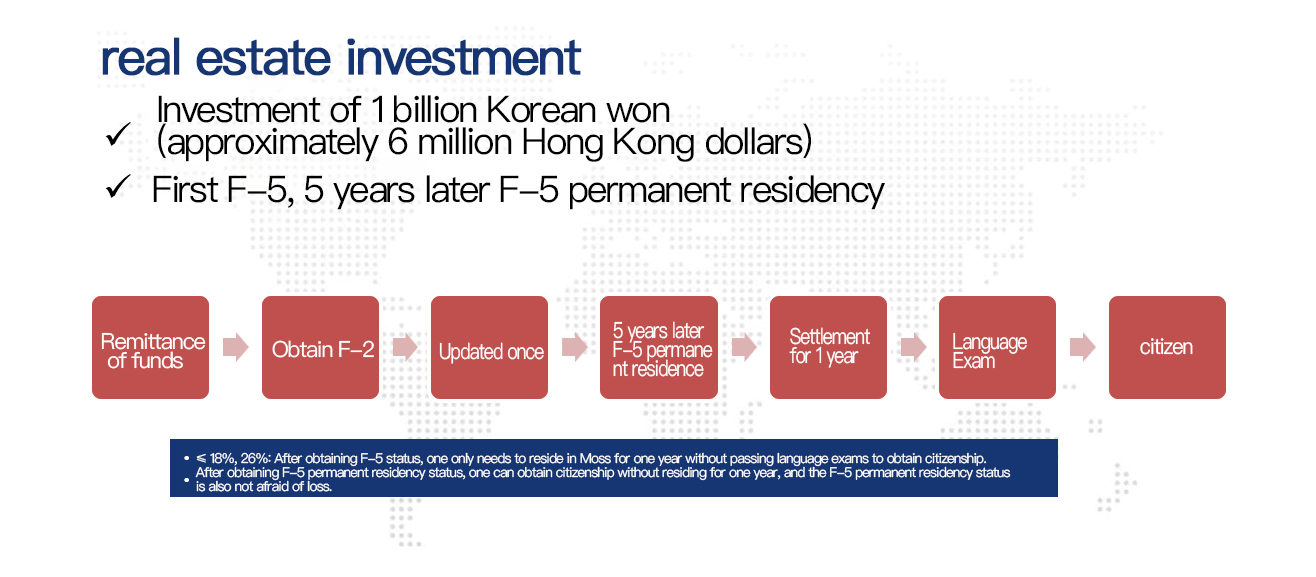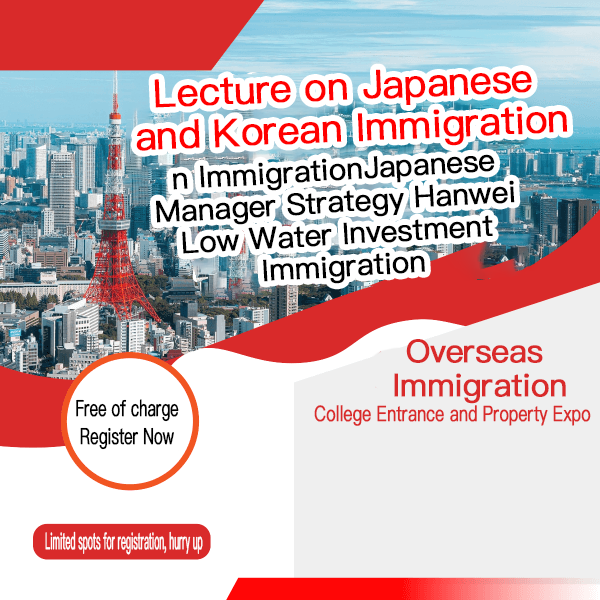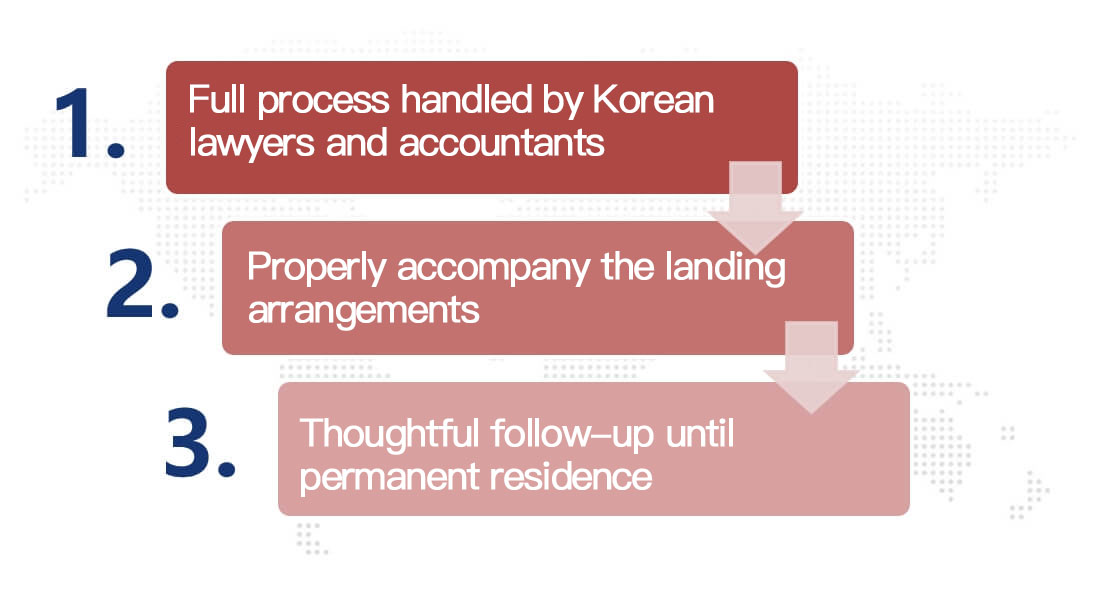South Korea Investment Immigration
Introduction
South Korea is a country located in the southern part of the Korean Peninsula in East Asia, with Seoul as its capital. South Korea is surrounded by the sea on three sides. The total area is about 100,000 square kilometers (about 45% of the total area of the Korean Peninsula).
geography
South Korea has a temperate continental humid and subtropical humid climate. The four seasons are distinct, with shorter spring and autumn; summer is hot and humid; winter is cold and dry. In summer, the temperature in most parts of South Korea will exceed 30℃. The temperature is cold in winter, with the lowest temperature in inland areas reaching -20℃.
population
According to the 2021 estimate, the population is about 51.829 million
capital
Seoul is the capital of South Korea and its economic, technological and cultural center. It is also the most populous city on the Korean Peninsula. As of 2020, the city's population reached 9.91 million; and the South Korean capital region with Seoul as its core has a total population of 24 million, ranking not only first in South Korea, but also the fifth largest metropolitan area in the world.
educate
The Korean school system is a 6-3-3-4 system, which means 6 years of elementary school, 3 years of junior high school, 3 years of high school, and 4 years of university. Primary, middle and high school education is free and compulsory.
- No immigration detention
- No age, education or language requirements
- Dual citizenship accepted
- Free high-quality medical care
- No international taxation
- High-quality free education
- Convenient location
- Passport Advantages
- Fast Approval
South Korea Investment Immigration Visa
South Korea promulgated and implemented the public welfare investment immigration visa on June 29, 2023. Applicants only need to invest 1.5 billion won in a fund designated by the South Korean Ministry of Justice for five years, with principal guaranteed and no interest. After five years, they can withdraw the principal and obtain a South Korean residence visa. After five years, they can apply to become a permanent resident of South Korea, and apply for Korean citizenship one year later.
Eligibility
- The main applicant must be 18 years old or above
- No criminal record
- Visit Korea for 1 day each year for 5 years
- Sufficient immigration funds and proof of source of funds are required
- Purchase government funds and subsequently transfer to other government-approved assets, with uninterrupted investment for 5 years
- The spouse and unmarried children of the main applicant may accompany the applicant
Program Benefits
- Low application threshold: no language, education and work experience requirements, no need to prove funds and explain the source of funds
- Low investment amount, investment in low-risk principal-guaranteed funds: Invest in public funds designated by the Korean government, and the principal can be fully withdrawn upon maturity
- No residency requirement: only need to land and stay for 1 day per year
- Fast approval time: F-2 residence visa can be obtained within one month
- No upper age limit for children: There is no age limit for accompanying unmarried children
- Can apply for permanent residency: After investing for 5 years, you can obtain F-5 permanent residency
Document List
- passport
- ID card
- Certificate of deposit
- ID photo
- Birth certificate of children (if any)
- Marriage certificate (if any)
- Starting from January 2023, a criminal record certificate will be required
- Applicants from Hong Kong and Taiwan,No medical examination or proof of source of funds is currently required
Eligibility
- An F-2 visa can be obtained by investing more than 1 billion won in real estate in six areas including Jeju, Incheon, Pyeongchang, Yeosu, Busan Haeundae or East Busan.
- After maintaining investment for 5 years, you can obtain a permanent residence F-5 visa
- No criminal record
- The spouse and unmarried children of the main applicant may accompany the applicant
Program Benefits
- Low application threshold: no language, education and work experience requirements, no need to prove funds and explain the source of funds
- Buy a house to get permanent residency
- Low application threshold
- No language, education or work experience requirements, no proof of funds or explanation of source of funds required
- Appreciation potential, permanent property rights
- Good benefits
- You can apply for a family accompanying visa F3 with your family, and enjoy Korean benefits together
F2 Residence Mode
- F2 residence model: 3+3+3⋯⋯
- The validity period of the first application for F2 is up to 3 years, and the renewal period is up to 3 years
F2 visa renewal requirements
- Maintain investment for 5 years, enter once a year, no stay time requirement, and land anywhere in Korea.
- You must be in Korea during the renewal period (approximately one week)
F2 to F5 permanent residence requirements
- Investment amount is 500 million won: investment maintained for 5 years, entry once a year, no criminal record;
- The investment amount is 300 million won: the investment must be maintained for 5 years, the applicant must enter the country once a year, have no criminal record, and provide domestic property of more than 300 million won in addition to the 300 million won deposit.
F5 Residence Mode
- F5 Residence Mode: 10+10+10⋯⋯
- The first application for F5 is valid for up to 10 years, and the renewal period is valid for up to 10 years
F5 Renewal Requirements
- You can enter the country once every two years, with no length of stay requirement, and can land at any location in Korea.
- You must be in Korea during the renewal period (approximately one week)
- Living in Korea for more than 5 years with an F2 visa
- Holder of South Korea F5 permanent residency qualification
- 19 years or older
- No criminal record in South Korea
- Passed the Korean language test, equivalent to the first or second grade level of elementary school
- Understand a certain amount of Korean culture and pass the comprehensive social assessment test
- For a child to obtain Korean nationality, at least one of the parents must be a Korean citizen
